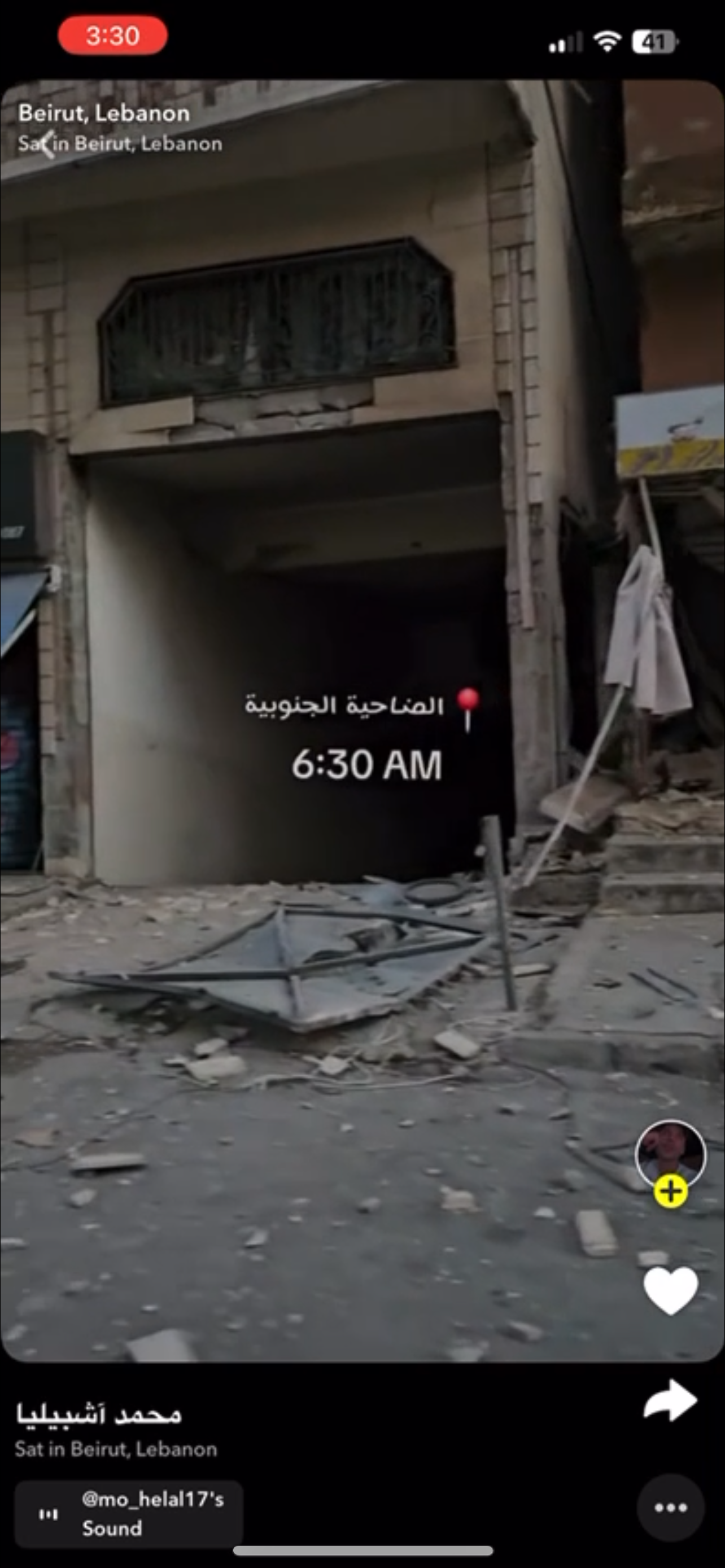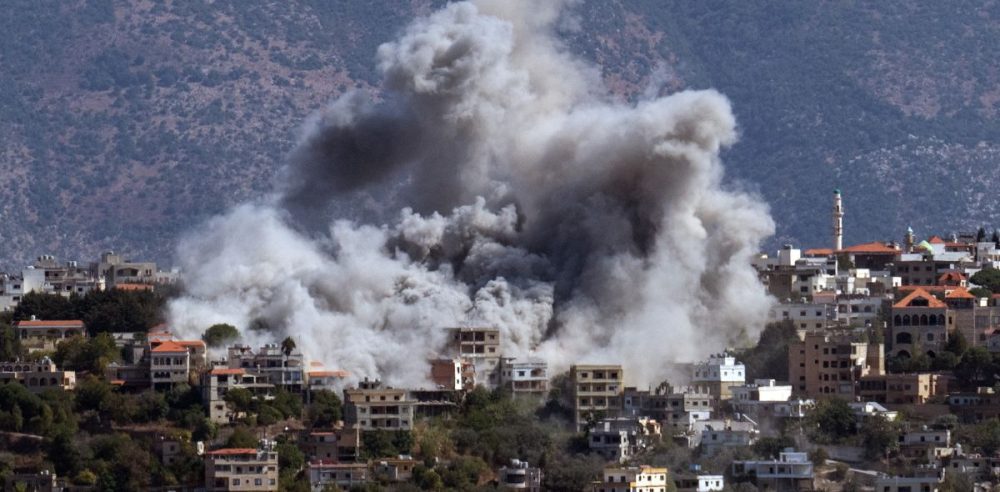Beirut Location Stories featuring videos of destruction have flooded Snapchat following an Israeli airstrike on Friday.
The videos show bombed-out buildings, shattered windows, and streets lined with rubble. The airstrike followed in the wake of an exploding pager attack executed by the Israelis just days prior.
The Israelis had reportedly implanted explosives in the batteries that suspected Hezbollah terrorists used in their pagers and then detonated the devices to kill their targets and disable the organization’s communications network.
This latest attack was more overt and less targeted. However, the airstrike on Beirut was not city-wide and appears to have been concentrated in just a few areas, the Location Stories would appear to indicate.
Snapchat Location Stories is a feature that allows users to see public snaps (photos or videos) posted by other users in specific geographic locations. These stories are created when Snapchat users submit their snaps to “Our Story” or another public feed, and Snapchat aggregates them based on location. Users can view snaps from events, landmarks, cities, or popular places on the Snap Map, offering a glimpse into what’s happening in different areas around the world in real time.
Most of the videos lack captions. However, a video that appeared to be edited on another platform before being uploaded to Snapchat was translated by Google as saying, “May God grant you coolness and peace, O Beirut. May God protect this country and its people.”
Another video merely said in translation that it was being filmed in the “southern suburbs,” although it did not specify which suburbs. A time signature indicates that it was filmed at 6:30 a.m. local time.
A video shot from an airplane window says, “Oh God, protect Lebanon and its people, Oh God.”
In one video, a popping sound can be heard as balls of light, which appear to be projectiles, move overhead and groups of Lebanese men duck and run from a gas station.
A blank picture with a caption had nothing but broken heart emojis and writing in white typeface. Google translated it as, “Thank God, I’m fine physically but definitely not fine psychologically… There is no power or strength, except with God… May God help the world.”
Heart emojis were common motifs in numerous videos from posters in Beirut. Typically they used hearts that matched their country’s colors, red, white, and green, and occasionally included trees from their national flag or other conciliatory gestures like hugs.
Other pictures showed the destruction of the American hotel chain Holiday Inn, in Lebanon’s capital city. However, these ruins of enterprise are not from the current conflict.

Lebanon was once a travel destination for many Westerners and the shell of the Holiday Inn is a testament to that. The building was reportedly destroyed in 1975 during the onset of the Lebanese Civil War, after being open for less than a year. It has never reopened.
Notably, the tone of the Lebanese posters was markedly less hostile than other posters in the region.
A previous investigation from The Dallas Express showed that propaganda and celebration videos flooded Snapchat Location Stories in the West Bank as Iranian missiles fell on Israel on October 1. Pre-made videos made ominous statements about wanting to continue to fight Israel, while locals reacted with jubilation to the sight of Israel being attacked.
Even as Iranian bombs fell on towns in the West Bank, in a presumable accident, sentiments from locals stayed cheery and anticipatory.
The Iranian missile strike on Israel and the Israeli airstrike on Beirut is the latest escalation in a conflict that is days away from turning a year old. The current Middle Eastern conflict began on October 7th, 2023 when 1,200 Israelis were reportedly killed by the terror group Hamas.
Since this time, the conflict has widened and come to include Hezbollah and other regional actors such as Lebanon and Iran.


